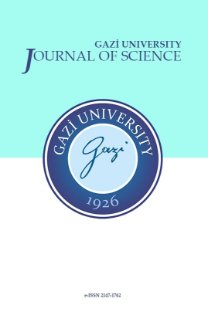A Robust PID Power System Stabilizer Design of Single Machine Infinite Bus System using Firefly Algorithm
A Robust PID Power System Stabilizer Design of Single Machine Infinite Bus System using Firefly Algorithm
___
- Kamari, N. A., Musirin, I., Othman, M. M. and Hamid, Z. A., “PSS-LL Based Power System Stability Enhancement Using IPSO Approach”, IEEE 7th International Power engineering and Optimization conference (PEOCO2013), Page(s): 658 – 663, (2013)
- Shubhanga, Dr. K. N., Yadi Anantholla, Mr. “Manual for A Multi-machine Small-signal Stability Program”, Version-1, India.
- Hingorani, N.G and Gyugyi, L., “Understanding FACTS”, IEEE press, NewYork, Page(s): (425– 429), (2000).
- Abdul Jaleel, J., Thanvy, N., “A Comparative Study between PLPD,PID and Lead-Lag controllers for Power System Stabilizer” 2013 International Conference on Circuits, Power and Computing Technologies [ICCPCT-2013], India, (2013).
- Demello, FP., Concordia, C. “Concepts of synchronous machine stability as affected by excitation control”. IEEE Trans Power Apparatus System; PAS-88: 316–29, (1969).
- Sebaa, K., Boudour, M., “Optimal locations and tuning of robust power system stabilizer using genetic algorithms”. Electr Power Syst Res;79: 406–16, (2009).
- Peng, Z., Malik, OP., “Design of an adaptive PSS based on recurrent adaptive control theory”. IEEE Trans Energy Convers, 24:884–92, (2009).
- Ramakrishna, G., Malik, OP., “Adaptive PSS using a simple on-line identifier and linear pole-shift controller”. Electrical Power Syst Res; 80:406–16.http:// dx.doi.org/10.1016/j.epsr.2009.10.004, (2010).
- Sambariya, D.K., Prasad, R., “Robust tuning of power system stabilizer for small signal stability enhancement using metaheuristic bat algorithm” Electrical Power and Energy Systems, 61: 229–238, (2014).
- EKE,I., TAPLAMACIOĞLU, M. C. ve KOCA ARSLAN, I., “Power System Stabilizer Design for Rotor angle stability”, International Journal of Engineering Research and Development, Vol.3, No.2, June (2011).
- Al-Duwaish, H.N., Al-Hamouz, Z.M., “A neural network based adaptive sliding mode controller: application to a power syst stabilizer”. Energy Convers Manage; 52:1533-8, (2011).
- Soliman, M., Elshafei A.L., Bendary, F., Mansour, W. LMI., “Static output-feedback design of fuzzy Sower System Stabilizers”. Expert System Appl; 36:6817–25, (2009).
- Mukherjee, V., Ghoshal, SP., “Intelligent particle swarm optimized fuzzy PID controller for AVR system”, Electrical Power System Res; 77: 1689–98, (2007).
- Bhati, PS., Gupta, R., “Robust fuzzy logic power system stabilizer based on evolution and learning”. Int J Electrical Power Energy System; 53: 357–66, (2013).
- Saoudi, K, Harmas, MN., “Enhanced design of an indirect adaptive fuzzy sliding mode power system stabilizer for multi-machine power systems”. Int. J. Electrical Power Energy System; 54: 425–31, (2014).
- Ghasemi, A., Shayeghi, H., Alkhatib, H., “Robust design of multi-machine power system stabilizers using fuzzy gravitational search algorithm”. Int J. Electrical Power Energy System; 51: 190–200, (2013).
- Ramirez, JM., Correa, RE., Hernández, DC., “A strategy to simultaneously tune power system stabilizers”. Int J. Electrical Power Energy System; 43: 818–29, (2012).
- Nechadi, E., Harmas, MN., Hamzaoui, A., Essounbouli, N., “A new robust adaptive fuzzy sliding mode power system stabilizer”. Int J Electr Power Energy Sys; 42: 1-7, (2012).
- Chaturvedi, DK., Malik, OP., “Neurofuzzy power system stabilizer”. IEEE Trans Energy Convers;23: 887–94, (2008).
- Awadallah, MA., Soliman, HM., “A neuro-fuzzy adaptive power system stabilizer using genetic algorithms”. Electr Power Compon Syst; 37: 158–73, (2009).
- Radaideh, SM., Nejdawi, IM., Mushtaha, MH., “Design of power system stabilizers using two level fuzzy and adaptive neuro-fuzzy inference systems”. Int J Electr Power Energy System; 35: 47–56, (2012).
- Chaib, L., Choucha, A. Arif, S,. “Optimal design and tuning of novel fractional order PID power system stabilizer using a new metaheuristic Bat algorithm”. Ain Shams Engineering Journal 8: 113–125, (2017).
- Soliman, M., Elshafei, A.L., Bendarya. F., Mansour, W., “Robust decentralized PID-based power system stabilizer design using an ILMI approach”. Electr Power Syst Res; 80: 1488–97, (2010).
- Soliman, M., “Parameterization of robust three-term power system stabilizers”. Electr Power Syst Res; 117: 172–84, (2014).
- Yanwei, C., Hui, Y., Huidang, Z., “PID controller parameters tuning in servo system based on chaotic particle swarm optimization”. In: IT in Medicine & Education. ITIME ‘09. IEEE International Symposium on, vol. 1, Page: 276–280, (2009).
- Abdul-Ghaffar, H., Ebrahim, EA., Azzam, M., “Design of PID controller for power system stabilization using hybrid particle swarm-bacteria foraging optimization”. WSEAS Trans Power Syst; 8: 12–23, (2013).
- Duman, S., Ozturk, A., “Robust design of PID controller for power system stabilization by using real coded genetic algorithm”. Int Rev Electr Eng, vol. 5, N. 5, page: 2159–70, (2010).
- Gandhi, P.R., Joshi, S.K., “GA and ANFIS based Power SystemStabilizer” Power and Energy Society General Meeting (PES); Page(s): (1 – 5), (2013).
- Curtis, J., “Process control instrumentation technology”, Fourth Edition, PHI, (1998).
- Akkawi, A.R., Ali, M.H., Lamont, L.A., El Chaar, L., “Comparative Study between Various Controllers for Power System Stabilizer using Particle Swarm Optimization”, Electric Power and Energy Conversion Systems (EPECS), 2011 2nd Int. Conference; Page(s): (1 – 5), (2011).
- Khodabakhshian, A., Hemmati, R., “Multi-machine power system stabilizer design by using cultural algorithms”. Int J Electrical Power Energy System; 44: 571–80, (2013).
- Yang,X. S., “Nature-Inspired Metaheuristic Algorithms”, Luniver Press, UK, (2008).
- Agarwal, S., Singh, A.P., Anand, N., “Evaluation Performance Study of Firefly Algorithm, Particle Swarm Optimization and Artificial Bee colony algorithm for Non-Linear mathematical Optimization functions”, Computing, Communications and Networking Technologies (ICCCNT), 2013 4th Int. Conference, Page(s): (1–8), (2013) .
- Yang, X. S., “Firefly algorithms for multimodal optimization”, Proc. 5th Symposium on Stochastic Algorithms, foundations and Applications, (Eds. O. Watanabe and T. Zeugmann), Lecture Notes in Computer Science, 5792: 169-178, (2009).
- Yang, X. S., “Engineering Optimisation: An Introduction with Metaheuristic Applica- tions”, John Wiley and Sons, USA, (2010).
- Kundur, P., Power system stability and control. 12th reprint. New Delhi, India, Tata McGraw-Hill Education Pvt. Ltd., (2011).
- Yayın Aralığı: 4
- Başlangıç: 1988
- Yayıncı: Gazi Üniversitesi, Fen Bilimleri Enstitüsü
Mustafa DEDE, İlkay ARSLAN GÜVEN, Cumali EKİCİ
Tuğba TABANLIGİL CALAM, Erdoğan HASDEMİR
On Modal Operators over the Generalized Intuitionistic Fuzzy Set
Saralees NADARAJAH, Ezzatallah BALOUI JAMKHANEH
Safia SLIMANI, Azzedine BENCHETTAH
Özge Karadağ, Serpil Aktaş Altunay
Shah Jahan Safi, Suleyman Sungur Tezcan, Ibrahim Eke, Zakirhussain Farhad
